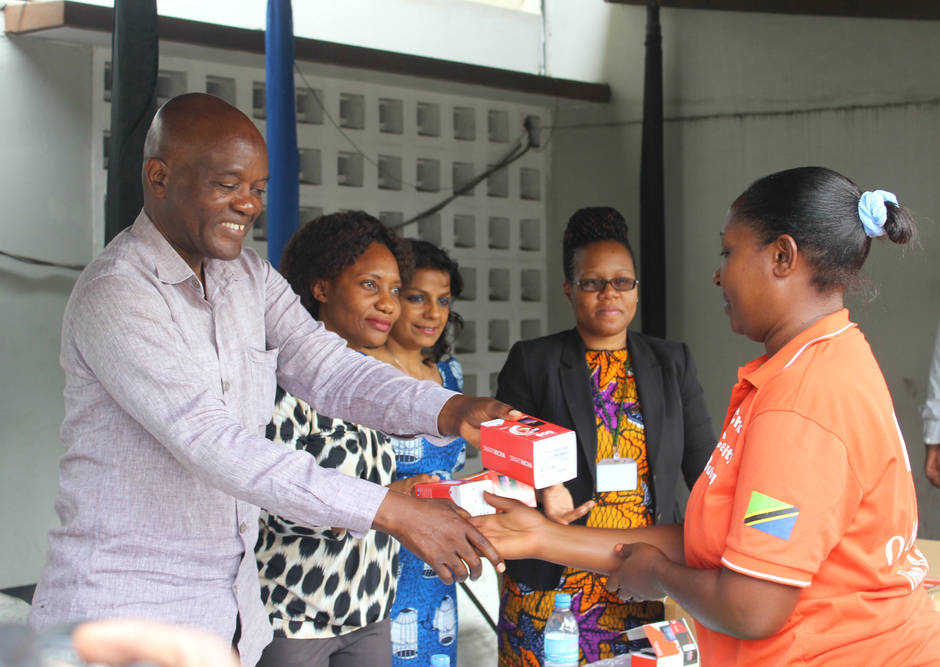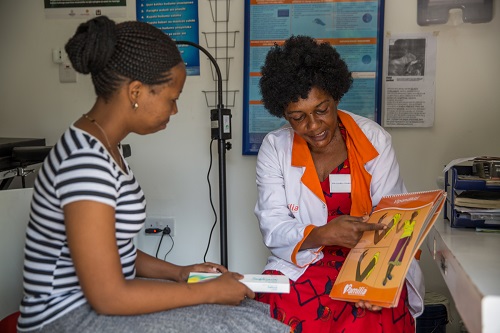Maternal Monday Part 2: The Life Changing Power of Information
How family planning and mobile phones are impacting the people we serve.
In last week’s post, we shared a snapshot of how your gifts have helped save lives and strengthen medical teams in Tanzania.
But how can we further increase the reach of your impact? By putting critical information into the hands of women and their families, and by improving communication between healthcare teams and facilities.
The Power of Information
In 2012, it was estimated that 222 million women in the developing world wanted access to contraceptives and information on how to safely space their pregnancies, but could not access those resources¹. A lack of access to information and societal pressure continue to limit the agency of women to make informed decisions about their future.
Estimates suggest that addressing the unmet need for family planning worldwide could prevent¹:
- 79,000 maternal deaths
- 1.1 million infant deaths
Doing our part.
The Tim’s Corner Family Planning Center at CCBRT is a place for patients and staff to receive one-on-one family planning counseling from a qualified nurse. Tim’s Corner also provides contraceptives and screening for cervical cancer. None of this would have been possible without the support of Kupona donors, in memory of Tim Manchester.
Situated just a few hundred feet from CCBRT Disability Hospital’s entrance, Tim’s Corner makes family planning counseling available to patients with disabilities, and some of the community’s most marginalized populations, empowering them to make informed decisions about their sexual and reproductive health.
Within the past year, CCBRT began providing one-on-one counseling sessions for every obstetric fistula patient at the Disability Hospital before they are discharged. This knowledge will help the recovering patient to safely plan and space her next pregnancy. Family planning education will also be integrated into the spectrum of services at CCBRT’s new Maternity and Newborn Hospital, serving over 12,000 patients a year.
We aren’t just putting information directly into the hands of patients. We’re also empowering healthcare teams to exchange the critical information need to save lives.

Acting Regional Commissioner Hon. Raymond Mushi, Regional Medical Officer Dr Grace Magembe, Dr Brenda D’Mello from CCBRT & Haika Mawalla, CCBRT’s Deputy CEO hand over phones to CUG representatives in 23 health facilities
Building bridges of communication between hospitals
For women experiencing complications at lower level facilities in Dar es Salaam, a potentially life-saving referral is now a phone call or text away. With support from the Vodafone Foundation through a public/partnership with USAID & PEPFAR, Global Affairs Canada, and Vodacom Tanzania, and the Regional Health Management Team, CCBRT has launched a Closed User Group to facilitate free communication between subscribers.
Ambulance teams, doctors and nurses in hospitals throughout Dar es Salaam, as well as Regional and District health management offices have been given cell phones that can only call other numbers in the group. Trained in how to use these phones to coordinate patient referral, staff at neighboring hospitals can now alert each other to incoming patients, seek information or medical counsel, share patient history, and make life-saving decisions collectively and quickly.
Information can only be transformative if it is shared.
Access to high quality healthcare begins with unlocking access to information. Whether it is a text message to a fellow doctor asking for a patient’s records, or a pamphlet that outlines family planning options, life saving information belongs in the hands of the people we serve.
Join us for our final installment in the Maternal Monday blog series next week.
1 Guttmacher/UNFPA. Adding It Up: Costs and Benefits of Contraceptive Services, Estimates for 2012. June 2012.


